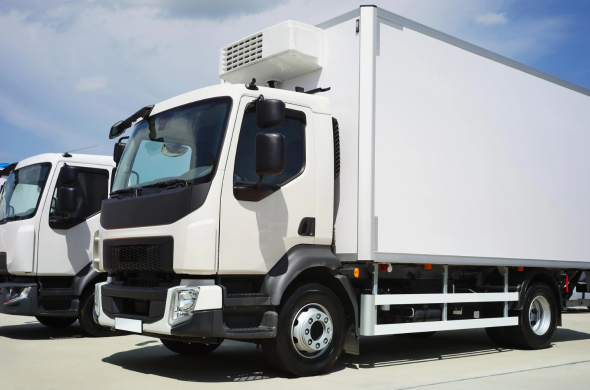The United Arab Emirates faces unique agricultural challenges that make generative AI adoption both critical and promising. With a national goal to produce 50% of the UAE's food locally by 2051, the country must overcome extreme climate conditions, water scarcity and limited arable land. The UAE agriculture market, valued at USD 3.6 Bln in 2024 and projected to reach USD 5.4 Bln by 2033, demonstrates significant growth potential despite these constraints. Enter generative AI in food and agriculture, a revolutionary technology that's particularly well suited to the UAE's innovative approach to farming. This artificial intelligence breakthrough creates new solutions specifically designed for desert agriculture, generates innovative approaches for climate controlled environments and optimizes entire agricultural ecosystems. From predicting crop performance in controlled environments to designing climate resilient varieties for extreme conditions, generative AI is reshaping the UAE's agricultural future.
Understanding Generative AI
Definition and Scope
Generative AI represents a significant leap beyond traditional artificial intelligence, particularly relevant for the UAE's technology forward agricultural sector. While conventional AI systems analyze and respond to data, generative AI creates new content, solutions and insights by learning patterns from vast datasets. In the UAE's agricultural context, this means AI systems can generate crop management strategies for controlled environments, design new hydroponic techniques and even create genetic sequences for crops optimized for desert conditions.
Think of generative AI as a highly sophisticated assistant that actively proposes solutions for the UAE's specific challenges. It processes enormous amounts of agricultural data; temperature fluctuations in controlled environments, humidity levels, soil less growing conditions, energy consumption patterns and generates actionable recommendations tailored to UAE farming conditions. This technology combines machine learning algorithms with creative problem solving capabilities, making it particularly valuable for addressing the complex, interconnected challenges of desert agriculture.
Benefits of Generative AI in Agriculture
The transformative power of generative AI aligns perfectly with the UAE's strategic agricultural objectives. Unlike one size fits all approaches, this technology considers countless variables to generate customized recommendations for individual facilities, whether they're vertical farms in Dubai or desert agriculture projects in Al Ain. It can simulate thousands of scenarios in minutes, helping UAE farmers make informed decisions about crop selection, resource allocation and energy optimization; critical factors in a country where energy efficiency directly impacts agricultural viability. Additionally, generative AI continuously learns and improves, ensuring that recommendations become more accurate over time.
Precision Agriculture Solutions
Smart Farming Technologies
The UAE's precision agriculture solutions leverage generative AI to create intelligent farming ecosystems perfectly suited to the country's controlled environment agriculture focus. These smart farming technologies integrate advanced sensors, IoT devices and climate control systems to collect real time data about growing conditions in vertical farms, greenhouses and hydroponic facilities. Generative AI processes this information to create detailed environmental maps, identify optimization opportunities and generate precise schedules for nutrient delivery, lighting and climate control.
AI powered systems can analyze multispectral data from indoor growing environments to assess plant health across entire vertical farming facilities, then generate variable rate application maps for nutrients and growth regulators. This approach has shown yield improvements of 15%-25% in controlled environments while reducing input costs by up to 30%. The UAE-US initiative directing $20 Mln in 2025 to support innovative desert farming technologies further accelerates these precision agriculture adoptions.
Crop Disease Prediction
Early detection and prevention of crop diseases take on special significance in the UAE's controlled environment agriculture, where diseases can spread rapidly in enclosed systems. Generative AI systems analyze patterns in environmental data, plant genetics and historical disease occurrences specific to controlled environments to predict potential outbreaks days before they manifest.
These predictive systems generate early warning alerts for diseases common in hydroponic and aeroponic systems, allowing facility managers to implement preventive measures without disrupting production cycles. Recent implementations in UAE vertical farms have achieved prediction accuracies exceeding 90% for common controlled environment diseases.
Soil Health Monitoring
In the UAE context, soil health monitoring through generative AI extends beyond traditional farming to encompass substrate health in soil less growing systems and desert soil rehabilitation. AI systems analyze growing media composition, nutrient cycling patterns and environmental factors to generate comprehensive substrate health assessments for hydroponic and aeroponic systems.
Advanced platforms generate detailed recommendations for optimizing growing media in controlled environments and improving soil structure in desert reclamation projects. The UAE's new agricultural programme targeting climate smart solutions across 30 percent of farms by 2030 relies heavily on these AI driven soil and substrate management insights.
Automated Farming Systems
Autonomous Farming Equipment
The integration of generative AI with autonomous farming equipment is creating unprecedented levels of efficiency in the UAE's unique agricultural environments. Modern autonomous systems for vertical farms, greenhouse operations and desert agriculture use AI generated operational paths that optimize energy consumption, maximize space utilization and ensure consistent growing conditions.
In vertical farming operations, AI systems analyze plant growth rates, energy costs and environmental conditions to generate optimal harvesting and replanting sequences that maximize both yield and energy efficiency. Government initiatives like Food Tech Valley and AgTech Parks, supported by electricity subsidies reducing costs by up to 90%, enable these energy intensive automated systems to operate economically.
Machine Learning in Agriculture
Machine learning in agriculture extends far beyond simple automation to encompass complex decision making processes crucial for the UAE's intensive agricultural systems. AI systems learn from databases of controlled environment agriculture knowledge, energy consumption patterns, market demands and facility performance data to generate increasingly sophisticated recommendations.
Machine learning algorithms analyze environmental sensors, energy consumption data and plant growth responses to generate precise climate control schedules that account for variations in external weather conditions, energy costs and crop growth stages. This approach has demonstrated energy savings of 25%-35% while maintaining or improving yields in UAE controlled environment facilities.
Predictive Analytics in Farming
Predictive analytics in farming represents the convergence of data science and agricultural expertise tailored to the UAE's strategic agricultural objectives. These systems analyze historical performance data from controlled environments, energy price patterns, market trends and input costs to generate predictions about optimal crop selection, production scheduling and resource allocation strategies that align with the country's food security goals.
Advanced predictive analytics platforms generate scenario analyses that help UAE farmers understand the potential impacts of different decisions under various conditions. This capability enables farmers to make data driven decisions that optimize both operational efficiency and contribution to national food security objectives.
Enhancing Food Supply Chain Optimization
Farm Resource Management
Effective farm resource management through generative AI optimizes the allocation of water, energy, labor and inputs across UAE agricultural operations, where resource efficiency is paramount. AI systems analyze resource availability, crop requirements, energy pricing patterns and operational constraints to generate comprehensive resource allocation plans that maximize efficiency while minimizing waste.
AI powered resource management platforms coordinate production schedules with energy pricing, labor availability and equipment maintenance needs to generate optimal operational plans. This approach to resource management has shown cost reductions of 20-30% while improving operational efficiency in UAE agricultural facilities.
Agricultural Data Analysis
The explosion of data in the UAE's technology driven agriculture requires sophisticated analytical capabilities to extract actionable insights. Generative AI excels at processing these diverse data streams to generate comprehensive analyses that inform decision making at facility, regional and national levels. These systems identify correlations between energy consumption, environmental conditions and productivity metrics.
Impact on Agribusiness
The transformation of agribusiness through generative AI extends beyond individual operations to encompass entire value chains serving the UAE market. AI systems generate insights that help agribusiness companies optimize procurement strategies for the local market, predict demand patterns for locally produced foods and develop new products and services aligned with UAE consumer preferences and food security objectives.
Climate Resilient Crops and Sustainable Food Production
Role of AI in Developing Climate Resilient Varieties
Generative AI is revolutionizing crop breeding for the UAE's extreme climate conditions by accelerating the development of climate resilient crops that can withstand intense heat, humidity and salinity. AI systems analyze genetic sequences, environmental stress data and breeding records to generate predictions about how different genetic combinations will perform in the UAE's controlled environments and desert conditions.
UAE research institutions and private companies use AI to generate genetic profiles for crops optimized for controlled environment agriculture and salt tolerant desert farming. The Integrated Desert Farming Innovation Platform's $20 Mln investment by end of 2025 supports these AI driven crop development initiatives that are essential for achieving local production targets.
Personalized Nutrition Solutions
The application of generative AI to personalized nutrition solutions represents an emerging frontier that connects the UAE's agricultural production with the health outcomes of its diverse population. AI systems analyze nutritional requirements, dietary preferences influenced by the multicultural population, health conditions and local production capabilities to generate personalized nutrition recommendations that optimize both health outcomes and agricultural sustainability.
Conclusion
Generative AI in food and agriculture represents a transformative force perfectly aligned with the UAE's vision for agricultural innovation and food security. From precision agriculture solutions optimizing controlled environment operations to comprehensive supply chain optimizations supporting the goal of 50% local food production by 2051, this technology is reshaping how the UAE produces, processes and distributes food.
The integration of smart farming technologies, autonomous equipment and predictive analytics creates agricultural systems that are more efficient, sustainable and resilient than traditional approaches while being specifically adapted to desert conditions. With significant government investments, supportive policies and a commitment to technological innovation, the UAE is positioning itself as a global leader in AI driven agriculture.
Discover how our agribusiness consulting expertise in sustainable food production strategy development, precision agriculture solution design, automated farming systems, smart farming technology frameworks, and agricultural digital transformation strategy enables farms and agribusiness companies to measure, enhance, and sustain both operational efficiency and long term agricultural resilience in the UAE's unique environment.



